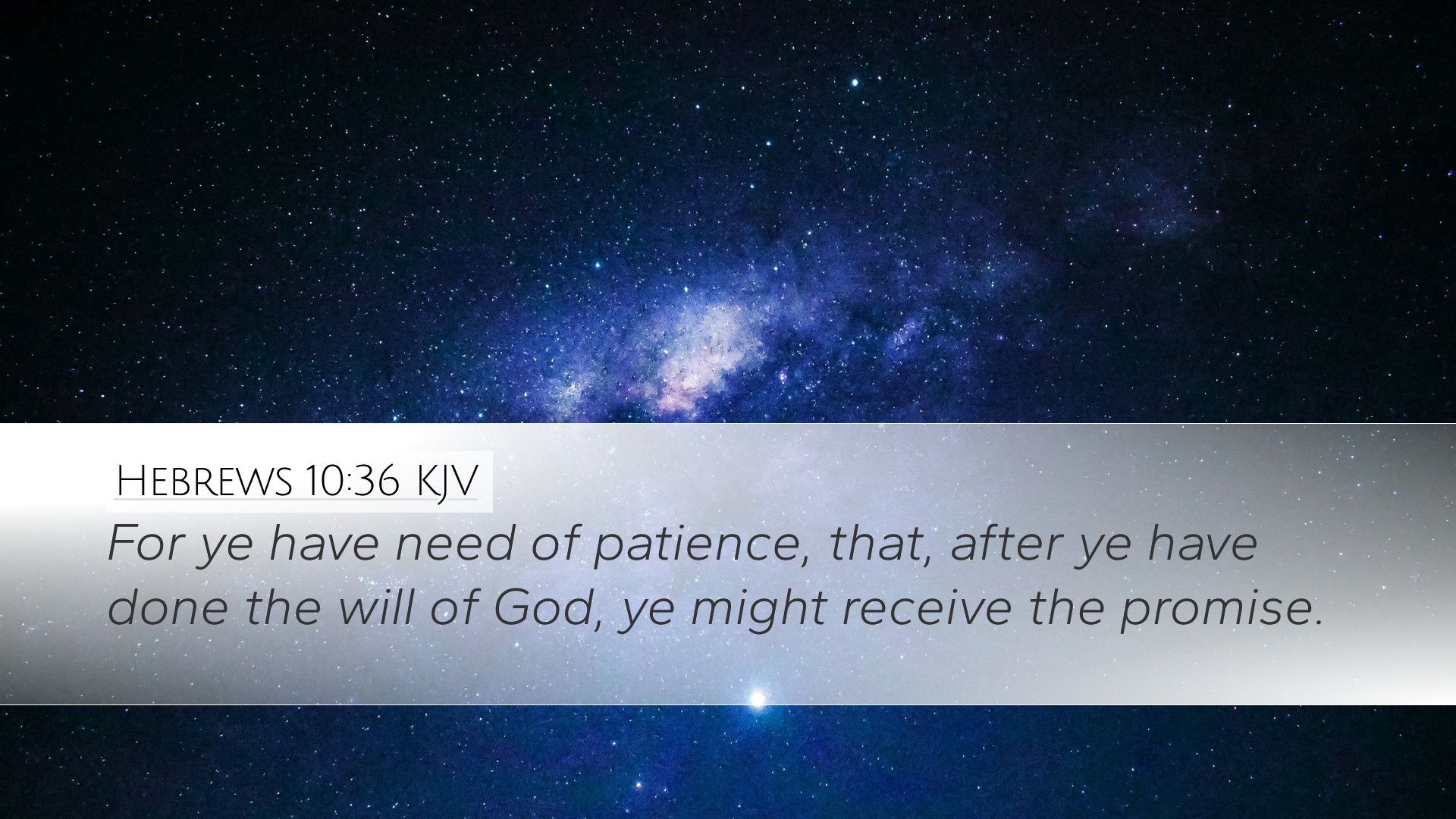Commentary on Hebrews 10:36
Verse: "For you have need of endurance, so that after you have done the will of God, you may receive the promise."
Introduction
This verse from Hebrews encapsulates a vital message of perseverance in faith. It succinctly illustrates the relationship between obedience to God's will and the necessity of endurance for believers. Both Matthew Henry and Albert Barnes emphasize the connection between enduring trials and the fulfillment of God's promises.
Need for Endurance
1. Understanding Endurance
Endurance, or patience, is foundational in the Christian walk. As noted by Adam Clarke, the Greek word used for endurance indicates a steadfastness that is crucial for those journeying in faith. The writer of Hebrews implies that this endurance is not merely a passive waiting but an active perseverance amidst challenges.
2. The Context of Trials
Henry highlights the trials faced by the early Christians, which were often of a severe nature. The exhortation to endure is set against a backdrop of persecution, doubt, and spiritual fatigue. This historical context offers a rich understanding of the audience’s need for such encouragement to remain steadfast in their faith.
Doing the Will of God
The connection between endurance and doing the will of God is critical. Barnes comments on how obedience to God's commands is intertwined with the fulfillment of His promises. Believers are reminded that their active participation in God's will involves both faithful practice and patient waiting.
1. Practical Implications
In light of this, Clarke suggests that believers are called to engage in good works, which naturally stems from their faith. This reflects the biblical principle that genuine faith always produces fruit. Therefore, doing God's will becomes both a duty and privilege for the follower of Christ.
Receiving the Promise
1. The Nature of the Promise
Hebrews speaks to the promises of God, which are often eschatological in nature. By referencing the 'promise', the writer alludes to the hope of eternal life and a future reward for those who persevere. Henry mentions that these promised blessings are certain and are contingent upon the believer's continued faithfulness.
2. The Assurance of Fulfillment
Barnes articulates that although the fulfillment of God's promises may not be immediate, God is faithful. The challenges of waiting for these promises can lead to spiritual growth and maturity, affirming that God’s timing is integral to His plan. God’s promises may come after trials, reinforcing the necessity of endurance.
Theological Reflections
1. Endurance as a Character Trait
In the journey of faith, endurance is not just about surviving hardships; it refines character and fortifies faith. Clarke notes the significance of patience in character development, paralleling James 1:2-4, which speaks of the perfection of faith through trials.
2. A Call to Community
The exhortation to endure is also communal. It invites believers to support one another in their respective trials, reflecting the body of Christ's call to love and serve one another. Collective endurance strengthens the church and enhances mutual accountability.
Conclusion
Hebrews 10:36 holds profound implications for the life of a believer. The need for endurance connects closely with the believer's active engagement in God’s will and the ultimate receiving of His promise. As pastors, theologians, and scholars reflect on this verse, there is a rich tapestry of assurance and challenge woven through its meaning. The call to trust in God’s faithfulness in the face of adversity remains ever relevant, shaping the believer’s journey toward eternal hope.


